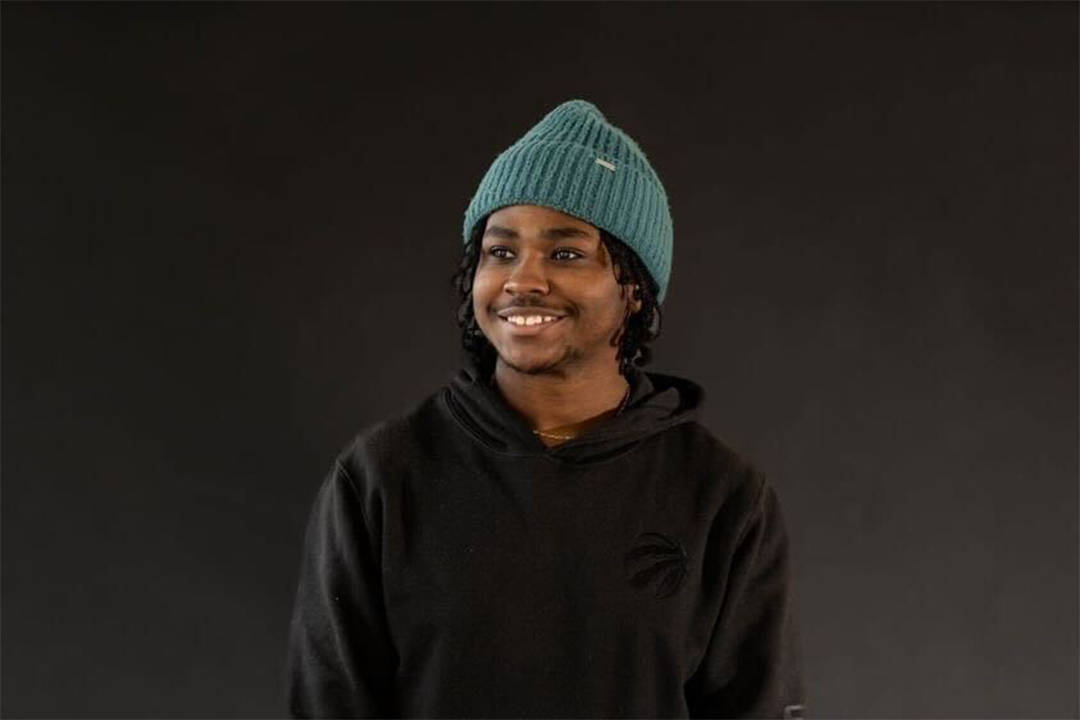“Make an impact.”
This is the slogan adopted by De-Mario Knowles, a second-year UTSC student double majoring in neuroscience and mental health studies with a minor in French, who has become a prominent figure across the UTSC community. A poet and keynote speaker for the mental health charity Step Above Stigma and hailing from Durham, Knowles worked with the university to create the Mental Health Minute — a series of short videos educating UTSC students on how to access mental health services.
The Varsity spoke with Knowles about his many passions and the importance of making an impact on his community.
The Varsity: How did you get involved in both poetry and keynote speaking?
De-Mario Knowles: It all started out by accident. I was accepted into this nonprofit organization called Teen Perspective. We were an activism organization made by teens for teens. We wrote journal articles about different stuff going on in the world.
I wanted to do something that would make me stand out. When Bell Let’s Talk Day [which aims to destigmatize and raise awareness of mental health issues] was coming around, my president at the time was like, “Guys, we should put out a poem,” and she asked, “Who wants to volunteer?” And I raised my hand, because why not? And I instantly regretted the decision.
I wrote eight verses about how I felt about mental health and how it’s portrayed in the world. I literally titled it “I wrote this poem about mental health,” and posted it on my Instagram.
I started realizing how impactful being vulnerable in the public eye can be. I realized when I write stuff, I want it to be like a conversation. When I can write like that, I can allow other people to feel recognized about how they feel.
Public speaking came as an add-on. I started getting invited to schools in my area to give speeches about my poem. So that’s the backstory. It’s not anything too fancy. I’m just a regular guy, 30 minutes away from Scarborough.
TV: You wrote a three-part poem project titled “From hurting to healing,” What was the process that went into creating that series?
D-MK: I originally started with happy poems that were encouraging. I’d be like, “Hey, it’s okay if you go through this; things will get better. You just have to stay optimistic.”
Sometimes, I just want to vent about how I feel and just be sad. I wanted the poem project to be exactly like my emotional timeline, where the first one is super sad. Then, the middle one moves forward from what happened. The third one is what I learned from it and how I’m going to apply it to my future.
The first poem that I wrote in the project, the one about grief, was actually written one year prior. I decided to make the other two as an expansion of it. I think [the poem about] grief took a while for me to put out because it’s my most personal poem.
It was about a very traumatic moment in my life. I was really scared, but I felt like this is something that can really impact the way that people feel. If I can put this out, I can start a dialogue about a very important topic that can resonate with many people.
I was lucky enough to win an award for it from an organization called Step Above Stigma. It’s definitely one of my favourite things that I put out in my poetry career.
TV: You began collaborating with UTSC’s Health & Wellness Centre to produce Mental Health Minutes, a series of brief videos aimed to raise awareness for department services. How important is mental health advocacy for you?
D-MK: Mental health advocacy is very important for me because I myself am someone who lives with mental health struggles on a day-to-day basis. I feel like there’s never too much advocacy for mental health.
There’s always this stigma that paints a negative light on people who have mental illnesses. People with mental illnesses are just regular human beings. They shouldn’t have to deal with this negative label on their back 24/7. I feel like mental health advocacy helps to combat that.
TV: Your slogan has been to “make an impact,” What does making an impact mean for you?
D-MK: See, that’s a good question. I’m trying to figure that out to this day. I think making an impact just means creating the change that you want to see in the world.
I like how ambiguous it is. I feel like it can apply to many different contexts. It can be for educational advocacy, journalism, science, or anything, as long as it makes a difference.This interview has been edited for length and clarity.



No comments to display.